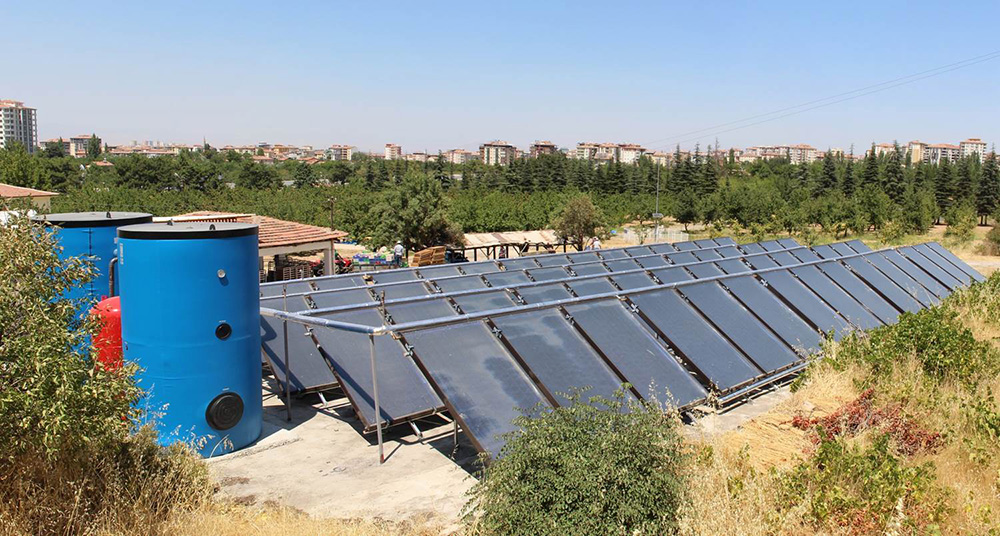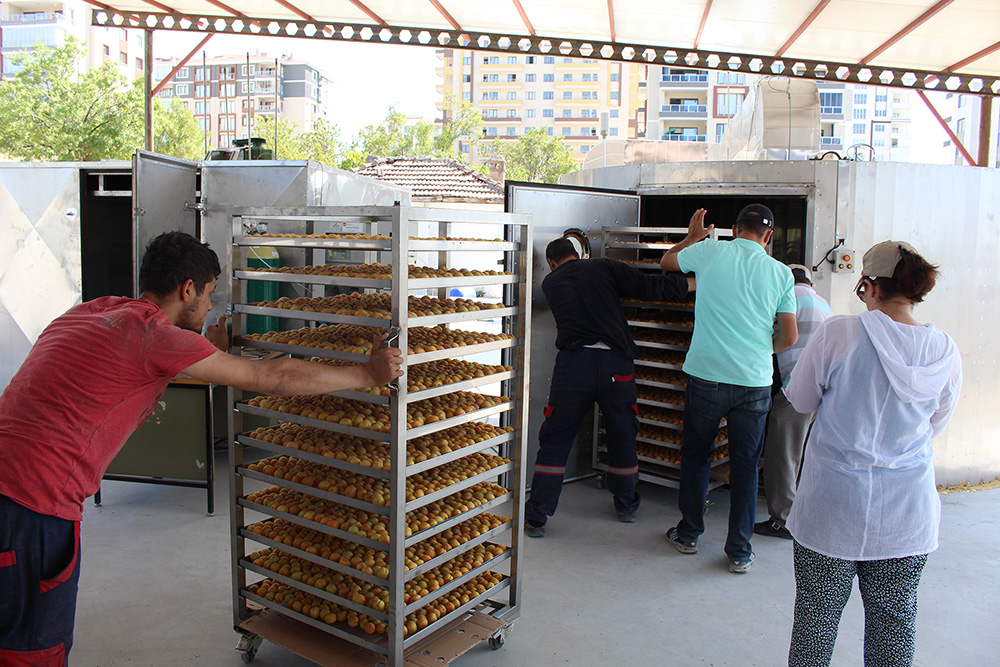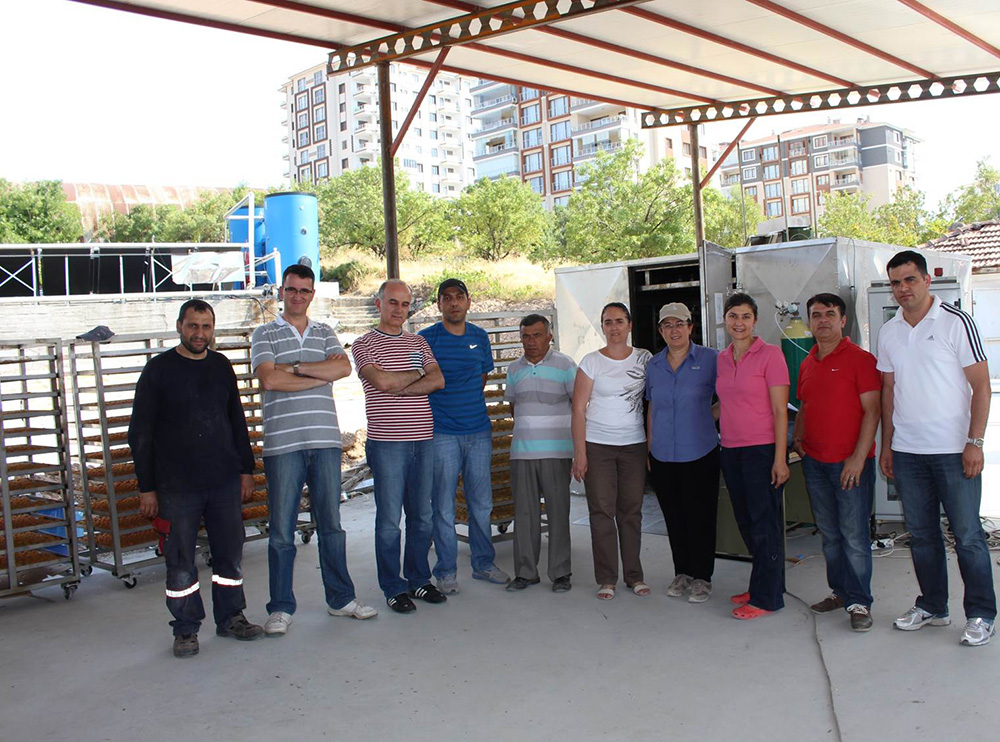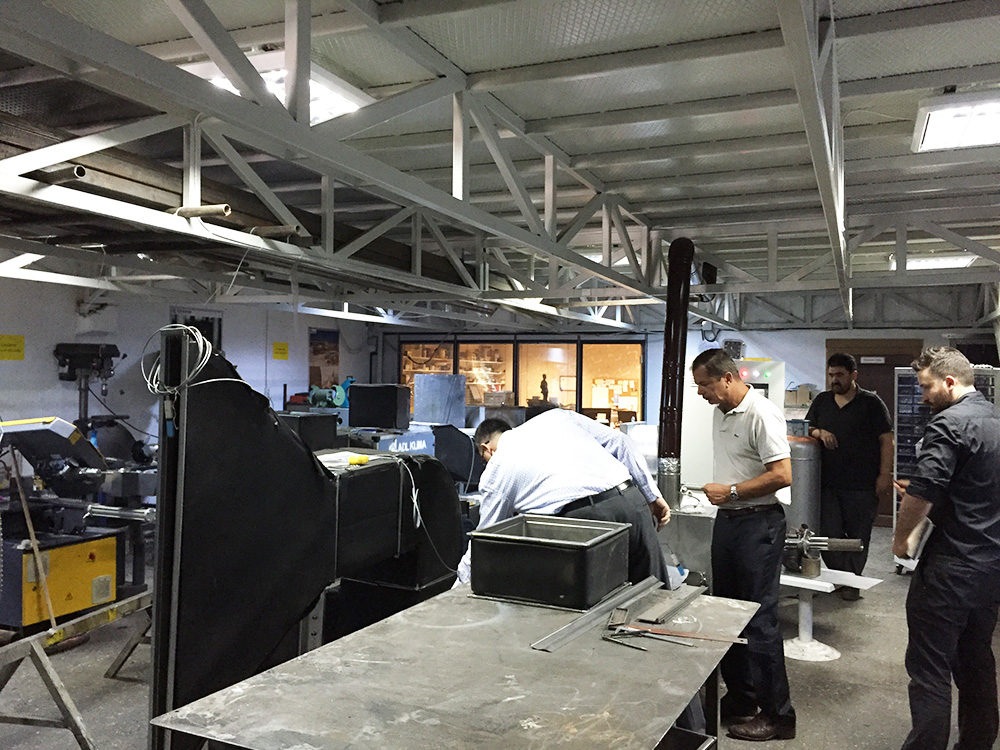TÜBİTAK MRC Food Institute has been conducting the Apricot Project since 01/02/2014 with the collaboration of public organisation (REPUBLIC OF TURKEY MINISTRY OF FOOD, AGRICULTURE AND LIVESTOCK- APRICOT RESEARCH INSTITUTE), private sector (GÖKSER Makine), university (İNÖNÜ UNİVERSİTY) and CHEMİCAL TECHNOLOGY AND ENERGY INSTITUTEs of MRC.
In this project it is aimed to develop automatized, user-friendly, low-cost, eco-friendly, hygienic, rapid sulphuring and solar energy assisted continuous drying systems for standardized high quality dried apricot production. It is also envisaged to study the effect of enzyme inhibitors and MAP technology using nitrogen gas for prolonging the shelf life of dried apricots with reduced sulphur content.
The outcomes of this project are listed below.
- Physiological and biochemical properties of different apricot varieties will be determined for a better dried apricot quality.
- Sulphuring unit in which SO2 will be fumigated homogenously at desired concentrations around apricots through an automated controlling system will be developed. By this way, it is aimed at reducing sulphuring time and attaining desired sulphur concentration level in dried apricots rapidly.
- Solar hybrid drying system which will permit rapid drying of apricots will be developed to dry the apricots to safe moisture content in hygienic conditions. In order reduce operation costs a hybrid heating unit which will use in part solar energy will be designed. The optimum drying parameters will be determined through preliminary studies where the kinetic of apricot drying as a function of variety and maturity stage will be investigated.
- Auxiliary packaging and storage techniques for dried apricots treated with low SO2 will be determined. In order to keep the quality of dried apricots treated with low amount of sulphur at least for 1 year period, dried apricots will be packed under hypoxic modified atmosphere conditions using nitrogen gas and oxygen scavengers. By doing so, it is aimed to eliminate the oxidative effect of oxygen thus retarding enzymatic browning.
With a multidisciplinary approach; systems will be designed and optimized, Near-infrared spectroscopy will be used for determining the maturity non-destructively, diffusion kinetics study will be used to optimise the CFD (Computational fluid dynamics) model of sulphuring unit.
Turkey leads the dried apricot production in the world with 60 % share in global market. The maximum allowable limit of sulphur in dried apricots is set to 2000 mg/kg according to Turkish Food Codex. In Europe, where 83 % of dried apricots are exported, same threshold is also applied. Nevertheless, FDA excluded SO2 from GRAS (Generally Recognized As Safe) list due to its negative effects on human health. Since dried apricots are produced according to traditional methods, problems of exceeding the maximum sulphur limit both for domestic and export dried apricots are not rare. In recent years European Union has undertaken some initiatives to reduce the maximum allowable limit (2000 mg/kg). If these initiatives will come up with results, in coming years it is probable to see an increase in the problems of exceeding limits.


























